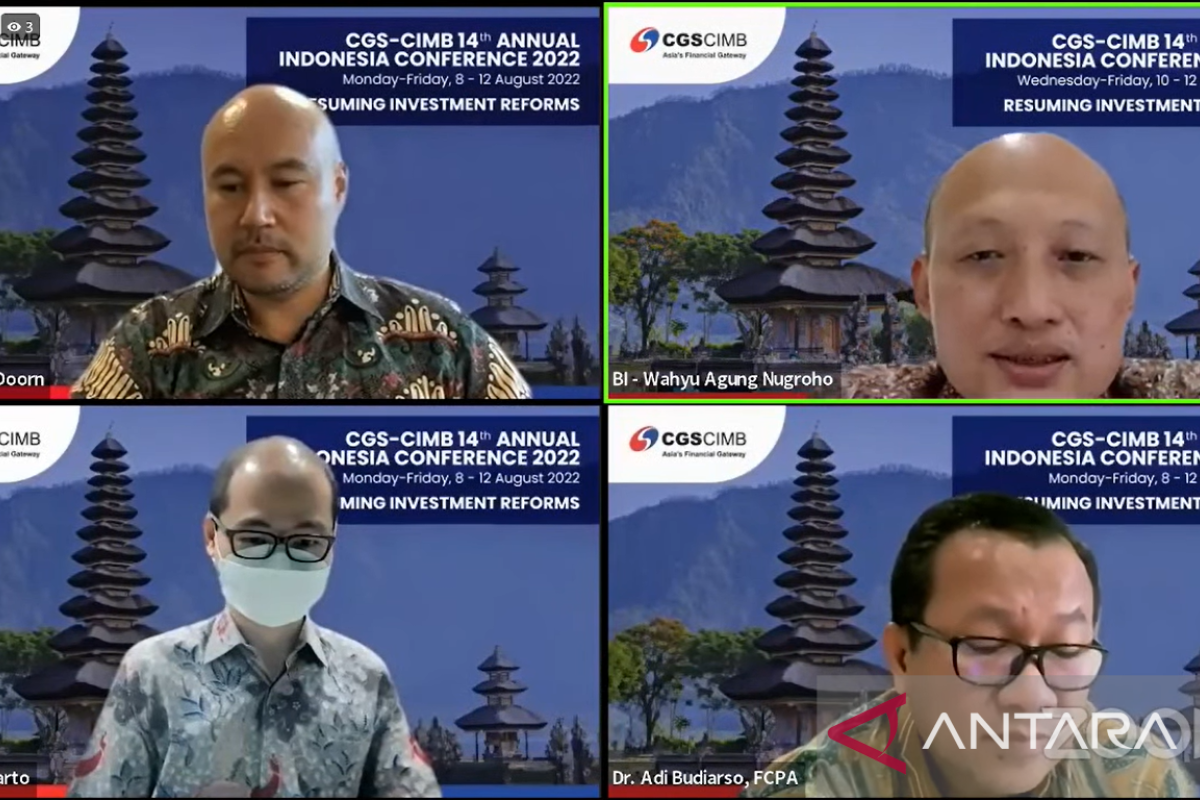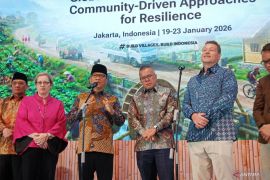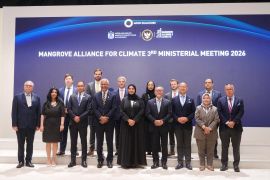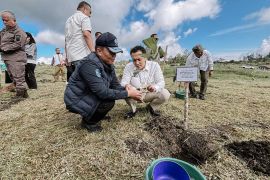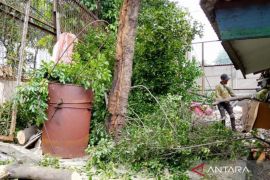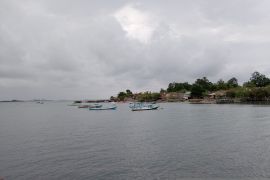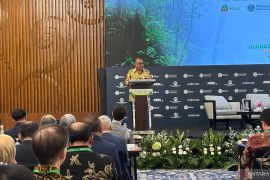Based on data for the past few months, one of the causes behind the recent inflation surge has been bad weather in the production centers of certain commodities, he pointed out.
The commodities affected in several regions across Indonesia include chili and red onion, he informed at the CGS-CIMB 14th Annual Indonesia Conference 2022 on Tuesday.
This is the reason why the monetary authorities are turning their attention to climate change.
Climate change will worsen if every country, including Indonesia, does not immediately take stringent and consistent action to reduce harmful global weather, Nugroho opined.
Of late, the global temperature has been rising, causing more frequent and severe material disasters, including in Indonesia. These natural disasters have led to production problems, particularly in agriculture.
Related news: Climate change losses could touch Rp544 trillion in 2020--2024: gov't
Technically, the global climate change risk can be divided into physical risk and transition risk. Physical risk refers to disruption in production and distribution due to extreme weather and other natural disasters.
Meanwhile, transition risk is tied to changes in strategy, policy, or investment when the public and industry work to reduce dependence on carbon and its impact on climate.
The two can threaten the stability of the financial system and lead to monetary instability, he explained.
In view of the various risks that exist, central banks across the world, including in Indonesia, are continuing to work hard on the climate change agenda together.
Nugroho said that if global climate change is allowed to continue, then Indonesia will become one of the countries that suffer the most.
Therefore, Indonesia is participating in the global effort to reduce carbon emissions by ratifying the Paris Agreement for cutting emissions by 41 percent by 2030.
BI, which is supporting this effort, has emphasized that the transition to a local economy must be done smoothly because it will take a long time and it will not be easy, Nugroho said.
One of the problems in this effort is figuring out how to finance the transition to a low-carbon economy in a just and affordable manner, he added.
Related news: G20 should realize blue carbon ecosystem against climate change
Related news: Climate change could threaten Indonesia's food security: BMKG head
Translator: Agatha Olivia V, Fadhli Ruhman
Editor: Suharto
Copyright © ANTARA 2022
